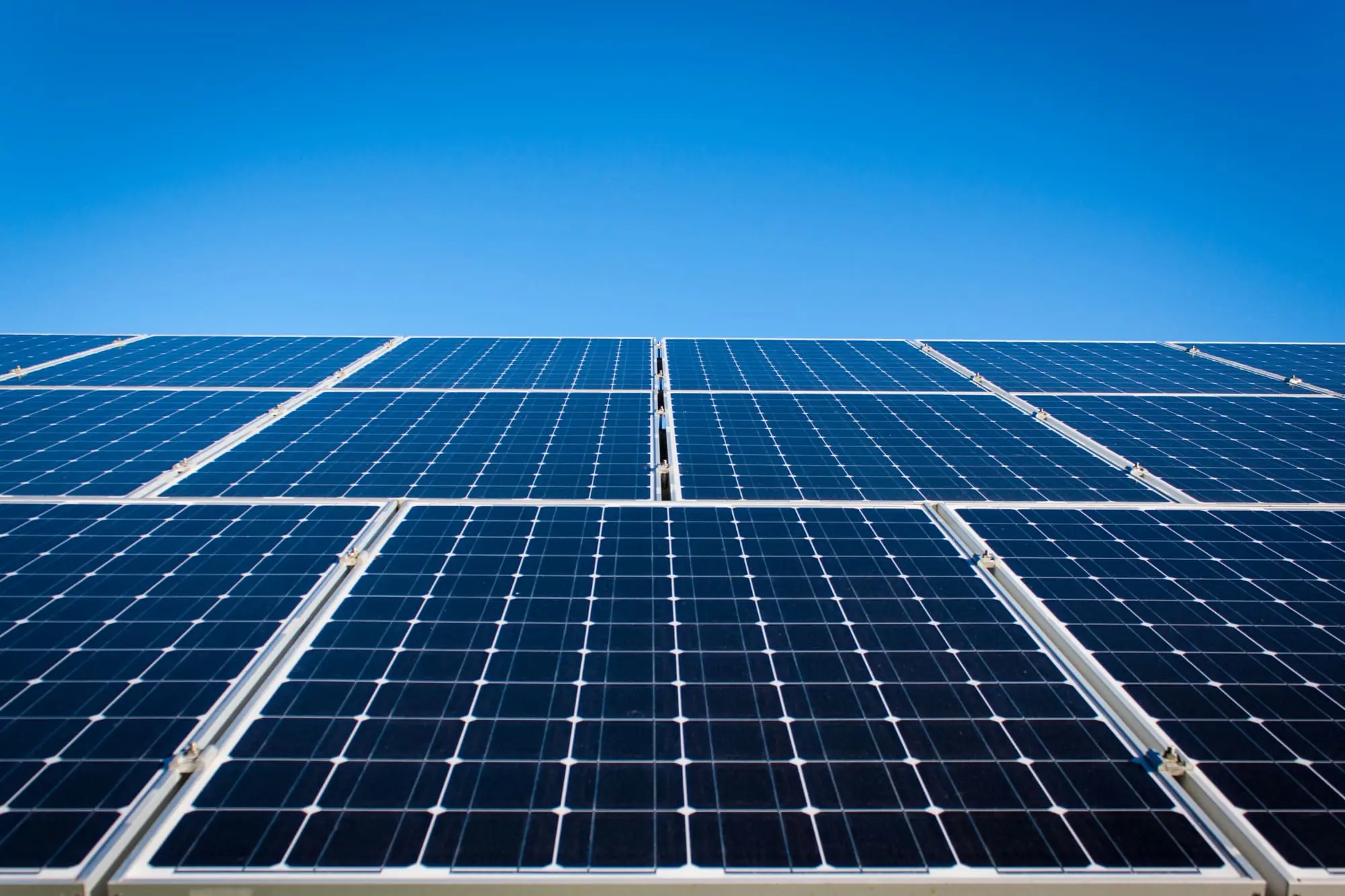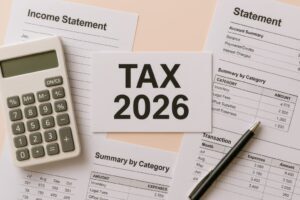Do you live in The Sunshine State?
If so, it’s time to make all of those glorious rays work for you! We’re talking about solar sales tax incentives.
The Florida Department of Revenue wants to reward residents seeking to become more energy-efficient and eco-friendly by providing tax incentives on qualifying solar purchases.
What do those incentives entail and how can you cash in on them yourself?
Today, we’re exploring the answers to those questions and more.
Ready to learn more? Let’s jump in.
What Florida Solar Sales Tax Incentives Exist?

On August 9, 2019, the Florida Department of Revenue issued Tax Information Publication (TIP) 19A01-09. This legislature outlines the specifics behind the state’s solar power tax incentives.
In short, Florida law prohibits any manufacturer in the state offering solar energy systems to charge sales or use tax. This extends to include the individual components that make up the system itself. However, as is the case with many legal formalities, there needs to be a clear understanding of what these terms mean and what they entail.
That said, what exactly does Florida define as a “solar system”?
In short, this term encompasses all of the equipment and necessary hardware required to complete the following actions:
- Collect solar energy
- Transfer solar energy
- Convert solar energy
- Store solar energy
- Use incident solar energy
Once the solar energy is in place, the state dictates that the system must convert sunlight into energy to be used for the following purposes:
- Heat water
- Heat and cool a space
- Perform any other application that would normally require the use of a conventional energy source (e.g. natural gas, electricity, petroleum products, manufactured gas)
If you’re unsure if the system or hardware piece that you’re eyeing falls into any of these categories, don’t worry. The full TIP documentation includes a list of all materials that the state considers a solar energy system or component. The major product categories included on the list are listed below.
Collectors
Solar collectors are used in thermal applications to attract and retain the sun’s radiant heat. Then, they work to transfer this heat to a fluid, which then travels to conduct a range of heating activities, including:
- Domestic water heating
- Pool heating
- Space heating
- Space cooling
In this way, the collector is responsible for providing the system’s main energy output Most solar collectors include an absorber plate and associated tubing. These components are often enclosed in an insulated box that features a transparent cover.
To be eligible for the Florida sales tax exemption, the collector in question must collect light energy from the sun and convert it into electricity. Keep in mind that there are specifications built into this law that allow a wide range of products to qualify. For instance, a pool blanket, which could be considered a passive solar collector, qualifies for it regardless of whether or not it’s integrated into a full-scale solar pool system.
Typical collector components include the:
- Cover plate
- Absorber and tubing
- Coating
- Insulation
- Box
- Photovoltaic array
Pumps and Controls
These components work in tandem to help circulate the fluid that exists between the solar collector and the storage medium.
Typical pump and control components include the:
- Pump
- Controller
Photovoltaic Power Conditioning Equipment
This is the equipment that receives the current directly from the photovoltaic array. Once it receives it, it converts it into alternating current for consumption. Or, it’s transferred to the electric utility grid.
Typical photovoltaic power conditioning components include the:
- Inverters
- Transformers
- Meters
- Junction boxes
- DC to DC converters
- Maximum power trackers
- Charge controllers
Storage Units
Storage units are any kind of equipment that receives thermal energy from a renewable source and stores it for future use. In the case of solar power, a storage unit would receive direct current.
Typical storage unit components include:
- Solar-specific tanks
- Conventional tanks
- Tanks with heat exchangers
- Expansion tanks
- Desiccants
- Regulators
- Batteries
- Mechanical housing
- Venting
Accessories
Note that these cannot be standalone accessories that exist and function outside of the solar power system. Rather, the Florida Department of Revenue maintains that the only exempt-eligible accessories are those that play an integral and vital role in the system as a whole.
The list of accessories is lengthy, but a few of the most common ones include:
- Air vents
- Piping
- Insulation
- Relief, mixing, check, and gate valves
- Bolts, nuts, screws, and washers
- Mounting brackets
- Angle irons
Integrated Systems
Finally, certain integrated systems also fall under the Florida solar sales tax exemption incentive. This is a new category added in the 2019 amendment that was not included in the 2015 version. These are systems with multiple hardware components that integrate with one another, working together to create an energy-efficient solar power system.
As detailed by the list below, most eligible integrated systems are brand-name-specific also that isn’t always the case.
Qualifying integrated systems include:
- Tubular skylights (not brand-specific)
- Solar water purifier (by Sooriyan)
- PondHawk system (by Linne Industries)
The History of the Law
Solar energy systems and their components have been exempt from Florida sales and use tax since 1997. Less than 10 years later, it became in jeopardy, even slated for repeal on July 1, 2005. Thankfully, the 2005 Florida Legislature removed the anticipated repeal date under an amendment to the law.
From thereafter, the exemption has no longer been subjected to any expiration date. Today, it’s in full swing, especially as people around the globe seek to become more energy-efficient than ever before.
What Does This Mean for Sellers?
If you sell any of the aforementioned equipment in your shop, you’ll be required to document all exempt sales that fall under this category.
To make this process as easy as possible (and to streamline and centralize the way that sellers perform it), the state has created a suggested form that sellers can offer to purchasers upon checking out.
By signing the form, the purchaser agrees to a simple statement at the top certifying that all equipment and associated hardware on the order attached will be bought or used exclusively in a solar energy system.
What Buyers Should Keep in Mind
Before you rush out to buy the latest and greatest solar energy components on the market, it’s important to understand that this law comes with myriad nuances and specific considerations.
Still, it does present a valuable opportunity, especially for businesses and individuals who were already anticipating making the move to more energy-efficient commercial or residential operations.
To that end, let’s discuss a few critical details that buyers should keep in mind as they research and procure these systems.
Required Information at Checkout
Along with their signature, all purchasers will be required to include their printed name, address, and date on the form provided by each seller. After they complete it, they’ll present it to the seller to be included in their records.
Separating the Costs
Are you interested in purchasing a solar power system as a part of a greater facility upgrade? Perhaps you’re also expanding your operations, growing your workforce, or investing in more tech-savvy hardware throughout your offices.
In any case, you’ll need to make sure that the solar energy system or component that you buy is a completely separate transaction from anything else you buy for your project. This can be impossible with some setups, such as energy-efficient patio lights, calculators and other novelty items.
Considering Property Taxes
Sales tax exemptions aren’t the only incentives offered through the Florida Department of Revenue.
According to the Florida Constitution, local governments can levy ad valorem taxes on their real property and tangible personal property. Usually imposed at the time of the transaction, this tax is based on the value of the transaction or property, deriving its name from a Latin term that means “according to value.”
In 2008, voters decided to change that amendment to make it more favorable toward those pursuing solar energy initiatives.
Now, any time a solar energy device (or any kind of renewable energy source device) is installed on residential real property, 100% of the property value increase that occurs as a result of this installation is exempt from additional property tax.
The state legislature codified this completely residential exemption, applying it to renewable energy source devices that were installed on or after January 1, 2013.
Non-Residential Exemptions
Later, in 2016, this same issue was again brought up in a vote.
At that time, more than 70% of Florida voters approved adding another amendment to the state constitution to extend the exemption beyond residential real property to also include non-residential real property, as well as tangible personal property.
The only difference in this new exemption and the one that preceded it eight years prior? This one is only permissible for 20 years.
In response, the Florida Legislature implemented the amendment. It did so by proclaiming the following two exemptions:
- If a renewable energy source device is installed on any nonresidential property, 80% of its just value is exempt from consideration when determining the assessed value of the property as a whole.
- If someone adds a renewable energy source device to their tangible personal property, 80% of its value is exempt from consideration when determining the tangible personal property tax.
Why limit these exemptions to 80% of the value of these renewable energy devices? Why not make then 100% like their residential counterparts? The answer came from legislative sponsors. They argued that local governments should receive some kind of monetary gain from solar projects. This way, they can actively seek new ones for their communities.
This non-residential exemption generally applies to projects that started after January 1, 2018. However, some former projects that commenced before that date were grandfathered in. At the same time, there were also some projects that took place after that date, but because they occurred in certain fiscally-constrained Florida counties, the exemption wasn’t upheld.
For solar developers looking to cash in on this opportunity, it’s critical to know that non-residential exemptions expire on December 31, 2037.
Other Solar Incentives in Florida

Are sales and property tax exemptions the only benefits and incentives that residents should expect when making the decision to switch to solar?
Not quite!
You can also take advantage of the following programs:
- The Federal Government’s 30% Federal ITC tax credit
- Property Accessed Clean Energy (PACE) Program
- Net Metering
Let’s explore these in greater detail.
Federal ITC Tax Credit
This federal mandate allows homeowners to claim 30% of the cost of their new solar power system as a valuable income tax deduction. In other words, you’ll receive 30% back on the price you pay for such a system.
In the event that your tax liability is less than 30% of the cost of the system, you can roll your balance to the next period for up to 10 years. To apply, fill out Form 5695 on your taxes.
PACE Program
Under Florida law, some localities can offer loans to homeowners to help them finance their solar power systems and other energy-efficient upgrades. These are paid for through a property tax increase on that localities government. This can help homeowners to get up and going, passing the balance of their loan to the next owner if they sell their home down the road.
From there, the new owner can choose to continue paying the loan. Or, he or she could remove the equipment altogether.
You can check with your county officials to see if PACE financing is available in your area.
Net Metering
The state didn’t get its sunny nickname for nothing! There is an ample amount of sunlight available for the majority of the day. If this is the case where you live in Florida, a net metering program allows you to export any excess power your home retains over to the grid.
Net metering means that you’ll receive compensation for your utility contribution, provided in accordance with the rate you currently pay for power. This is calculated in terms of kilowatt-hours, or kWh. This means every kWh you contribute, you receive one kWh off of your next utility bill. It doesn’t take long to see your solar investment pay for itself!
Take Advantage of These Florida Tax Incentives on Solar Power

There’s never been a better time than now to cash in on everything that bright and beautiful Florida has to offer.
The state provides some of the most rewarding and valuable tax incentives around, so if you’re considering making the switch to solar, you don’t have anything to lose.
Need a little advice or professional counsel as you learn more about this legislation and others like it? That’s where we come in.
We’re qualified and experienced tax attorneys ready to help you navigate the jargon, fine print, and legalese that can surround this process. Contact our Fort Lauderdale tax team today to learn more.





